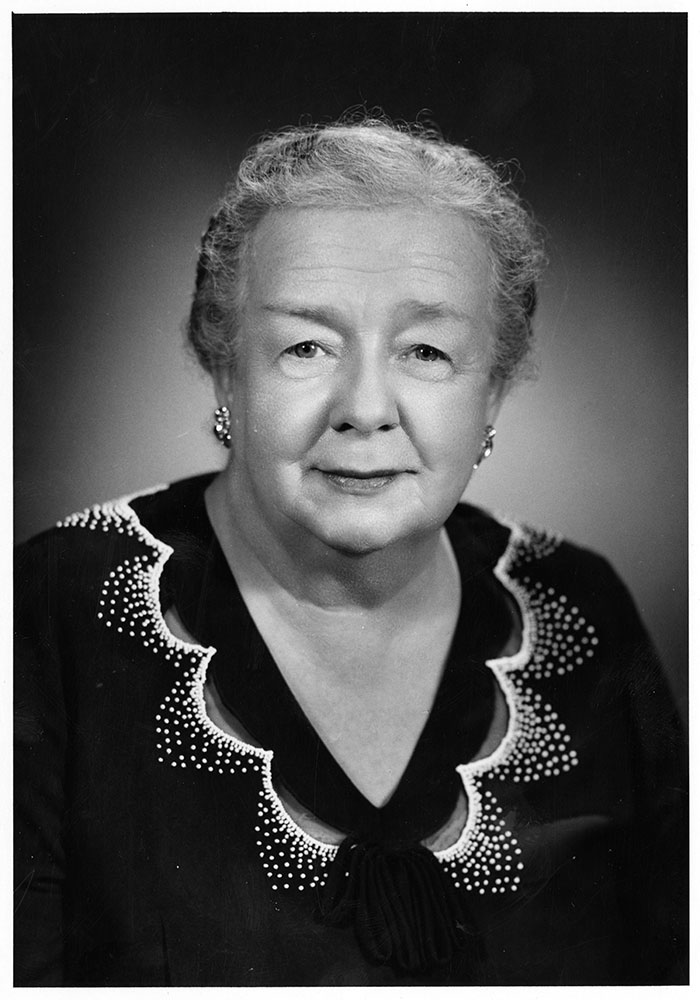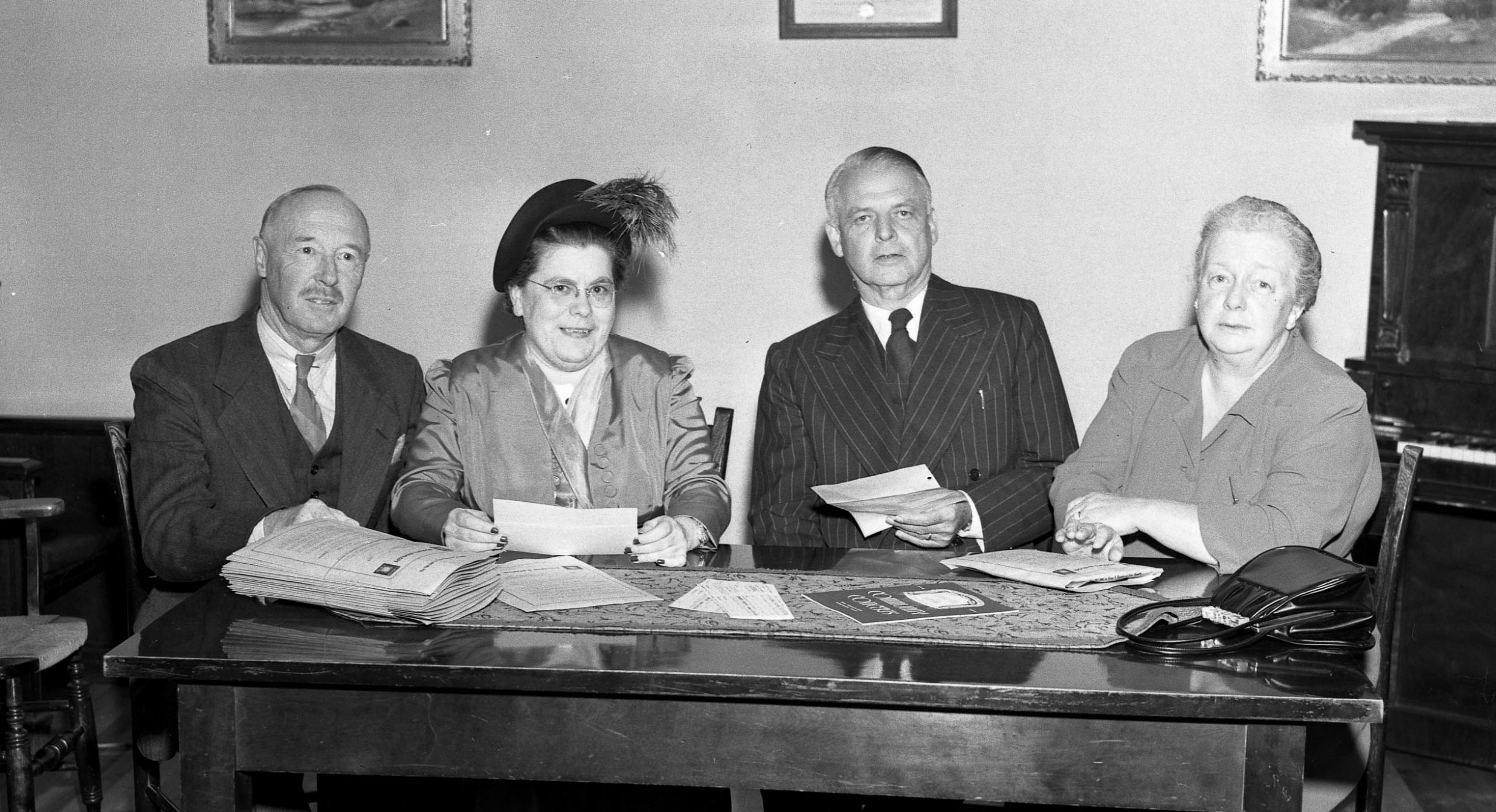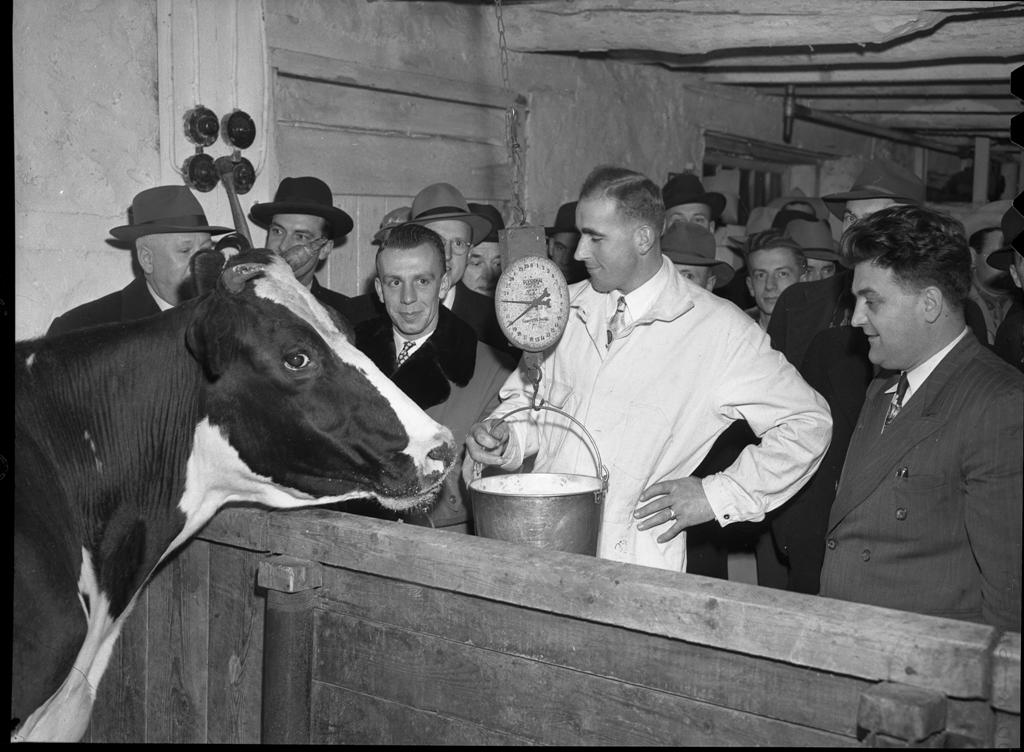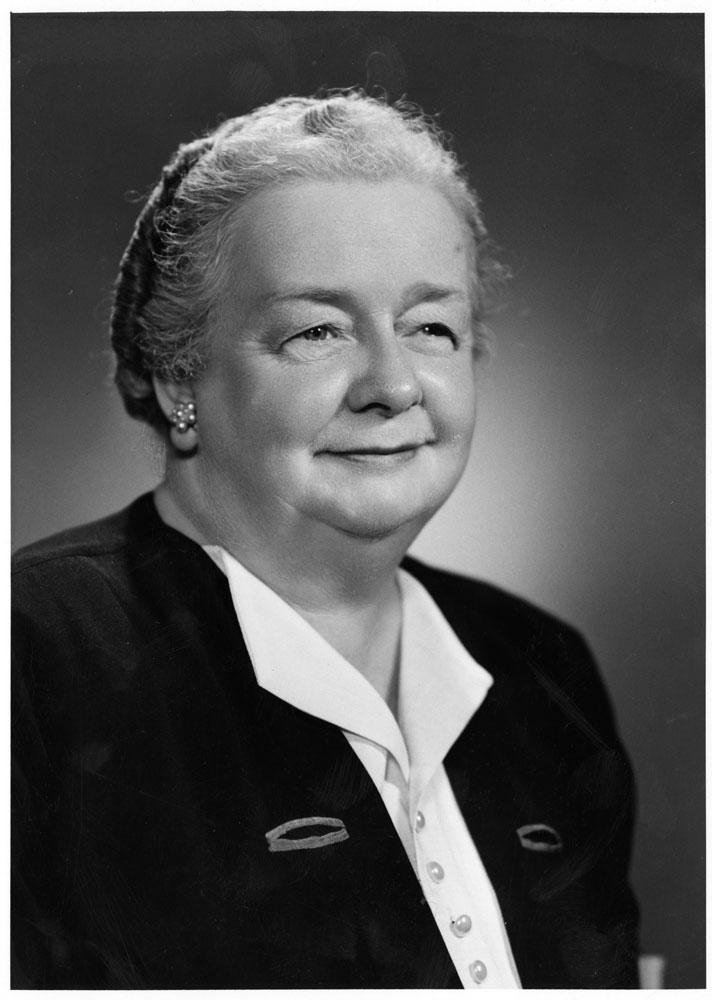In 1992, the Government of Canada designated October as Women’s History Month, marking the beginning of an annual month-long celebration of the outstanding achievements of women throughout Canada’s history. Women’s History Month in 2020 includes the International Day of the Girl (October 11) and Persons Day (October 18). For Women’s History Month we will be looking at the life and times of women who have left their mark on the story of Mississauga.

Ruth Houck was born Ruth Howard Smith on December 3, 1894 in Wisconsin, one of five children. Smith studied at New York’s Cornell University, graduating with a Bachelor of Science in 1916. She married John Edward Houck of Black Creek, Ontario in 1918. The couple lived in the Niagara area until the 1930s, when they set up Houckholm Farm at Derry West, Toronto Township (now Mississauga). The farm was located on Hurontario Street, south of Derry Road. Houckholm Farm was a successful operation, setting various world records for dairy cattle.
Ruth became involved in the Derry West branch of the Federated Women’s Institutes of Ontario, eventually getting involved at the national level of the Women’s Institutes, convening peace education programs before and after the Second World War. She helped organize the 1951 Toronto conference of the Associated Countywomen on the World, attracting 1000 delegates and 9000 additional members from over 20 countries. A smaller group from this event toured Houckholm Farm, to see the milking practices and technology used in Canada.

During the 1940s and 1950s, Houck served on numerous boards including as Toronto Township’s representative on the Brampton High School District School, and as one of the first women on the Royal Agricultural Winter Fair Board.
Houck was elected a board member of the Ontario Women’s Liberal Association in 1947, serving as its President during the mid-1950s. She twice sought the Liberal candidacy in Peel, withdrawing her nomination both times. Carl Flaman of the Burnhamthorpe area received the provincial nomination, 1951, while Port Credit’s A.J.C. O’Marra received the federal nomination in 1952. She won the 1953 provincial nomination, becoming Peel’s first female candidate for provincial or federal office. She placed second with one-third of the vote, against incumbent Colonel Thomas L. Kennedy.
Soon after, the federal government chose Houck as one of the five Canadian delegates to the 10th Session of the United Nations General Assembly. Among the representatives from 60 nations, only six others were women. Houck was Peel’s second delegate to the UN, following Gordon Graydon, and is believed to be the fifth Canadian female, following Montreal’s Carine Wilson and three others.

After her Session, Houck talked extensively, particularly to women’s groups. Period press coverage notes she spoke primarily on encouraging women to take an active part in civic affairs, and to support the programs and values of the United Nations.

Houckholm Farm was later sold to Jungle Park Zoo. Ruth Houck died May 27, 1979 at Scarborough Centenary Hospital.
Special thanks for this article to Nick Moreau, Archives reprographics, Peel Art Gallery, Museum and Archives (PAMA)
NOTE: This story was previously published as part of the Way Back Wednesday series in Modern Mississauga by Heritage Mississauga.
It can be found on their website here: https://www.modernmississauga.com/main/2020/10/7/womens-history-month-remembering-mississaugas-ruth-houck



Comments are closed.